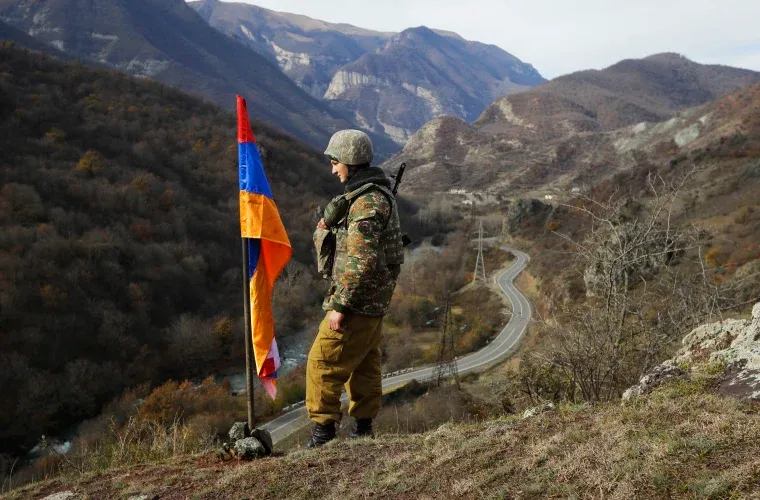The Shadows of War in Eastern Europe: Ukraine, Armenia, and Azerbaijan in the Spotlight
September 20, 2023 In a series of unfolding events this week, Eastern Europe's precarious balance has been shaken. President Volodymyr Zelensky of Ukraine delivered a confrontational speech at the UN General Assembly, alluding to no possible peace with Russia during his tenure unless Moscow disarms. In parallel, the

September 20, 2023
In a series of unfolding events this week, Eastern Europe's precarious balance has been shaken. President Volodymyr Zelensky of Ukraine delivered a confrontational speech at the UN General Assembly, alluding to no possible peace with Russia during his tenure unless Moscow disarms. In parallel, the situation between Armenia and Azerbaijan further escalated, as Azerbaijani forces launched a fresh offensive in the disputed Nagorno-Karabakh region.
Zelensky's Vision for Peace
Zelensky’s rhetoric was crystal clear: peace with Russia hinges on Russia's complete disarmament – a goal many believe to be unrealistic. Zelensky's pointed reminder of Ukraine giving up its vast nuclear arsenal under US pressure and designating Russia as its safeguard was a move to further delegitimize Moscow's stance.
US involvement in the conflict remains ambiguous. Despite no public declaration by President Biden in his UN address about aiding Ukraine to confront Russia, an impending meeting between Biden and Zelensky could potentially lead to a significant military aid package for Ukraine. As Zelensky looks to rally global support, his anticipations from Israel after his upcoming meeting with Prime Minister Netanyahu remain under wraps, only hinting at future humanitarian collaborations.
Azerbaijan's Renewed Offensive
The situation in Nagorno-Karabakh is equally tense. Azerbaijan’s latest “anti-terrorist” campaign has led to heavy casualties, with the Armenian-controlled capital, Stepanakert, facing extensive bombardments. The long-standing territorial dispute, which led to two wars in the past three decades, has its roots in Nagorno-Karabakh's ethnically Armenian majority but internationally recognized affiliation to Azerbaijan.
Tensions escalated when Azerbaijani troops blockaded the critical Lachin corridor last December, effectively creating a humanitarian crisis for the enclave's 120,000 inhabitants by cutting off its only connection to Armenia. While Russian peacekeepers were supposed to mediate peace, their perceived inaction against Azerbaijani aggression has strained Moscow's relationship with its long-time ally, Armenia.
US Involvement and Russian Discontent
The recent arrival of 85 US troops in Armenia for a training mission, Eagle Partner 2023, has fueled Moscow's displeasure. As these US troops work to align the Armenian military closer to NATO standards, Russia views this collaboration skeptically, especially after Armenia's declining involvement in Collective Security Treaty Organization drills.
Armenian Prime Minister Nikol Pashinyan's critical remarks about Russia's inability to guarantee Armenia's security only intensify the fraying ties between the two nations. Moscow's unease is further exacerbated by Armenia's possible alignment with the International Criminal Court, which has indicted Russian President Vladimir Putin on war crime charges over his country's actions in Ukraine.
The Road Ahead
Eastern Europe's geopolitical landscape is shifting rapidly. With Ukraine's determined stance against Russia, Armenia's diplomatic overtures towards the West, and Azerbaijan's renewed aggression in Nagorno-Karabakh, the region is becoming a potential flashpoint.
As international players, such as the US and Israel, potentially deepen their involvement, the balance of power may undergo profound transformations. It remains to be seen how regional powers like Russia and Turkey respond and how these developments influence future peace negotiations.




